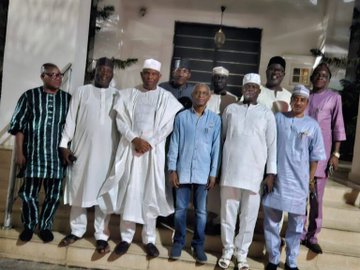Continuing his ongoing consultations with stakeholders across parties for possible political realignment ahead of the 2027 general elections, former Governor of Kaduna State and Chieftain of the All Progressives Congress (APC), Mallam Nasir El-Rufai, reportedly held another consultative meeting in Abuja over the weekend.
It was gathered that the latest meeting was hosted at Senator Abubakar Gada’s Abuja residence on the platform of the “IFTAR” breaking of the fast.

According to sources, those in attendance included El-Rufai, Alhaji Shehu Musa Gabam, National Chairman of the Social Democratic Party (SDP), Senator Teslim Folarin, former Senate Leader and the All Progressives Congress (APC) gubernatorial candidate for Oyo State in the 2023 general elections, Senator Nazif Suleiman, a chieftain of the People’s Democratic Party (PDP) from Bauchi State, and Hon. Kamel Akinlabi, a former member of the House of Representatives from Oyo State PDP, among others.
It was gathered that the latest meeting came just a few days after Mallam El-Rufai’s visit to the SDP National Secretariat, which has been generating serious concern about the real mission of the former Minister of the Federal Capital Territory (FCT) Abuja ahead of 2027.
A source at the meeting said that Alhaji Gabam appreciated the host for bringing together high-profile Nigerians who were more concerned about the current situation in the country and assured Nigerians of their collective commitment to ensure the country bounces back to its lost glory.
Gabam called on Nigerians to take advantage of this period and fervently pray for the peaceful coexistence of the country.
Recall that the SDP National Chairman has received a series of calls from Nigerians regarding the visit of Governor El-Rufai to his office. In order to clear the air, Gabam has granted an interview with the media on the visit, where he explained that he and El-Rufai were close friends whose relationship could be traced back decades and that every sensible human being is greatly disturbed by the current situation in the country, which requires the collective responsibility of all stakeholders, irrespective of party, ethnic, or regional inclinations.







